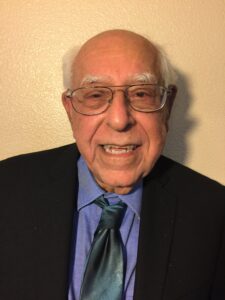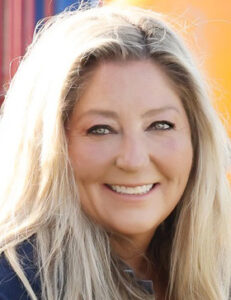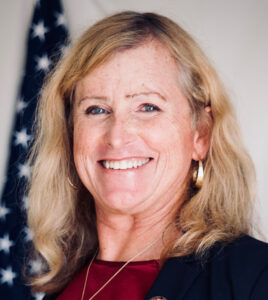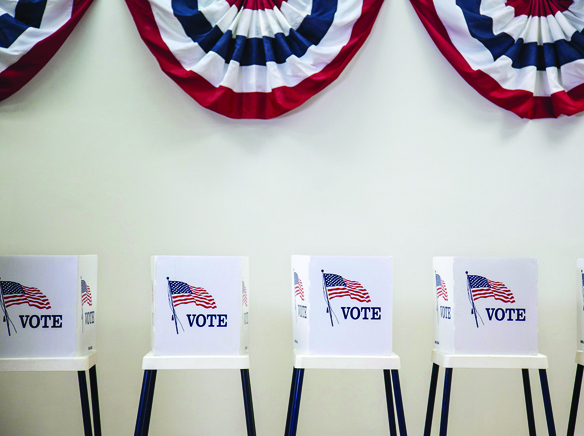District Three
Question 5: Do you think the city should upgrade Lifeguard Headquarters? How should Seal Beach pay for it?
Fred Macksoud

I of course think the City should a upgrade our Lifeguard Headquarters/police substation at the foot of our pier.
Our lifeguards are as important for public safety as our other first responders, the Police and Fire Departments. They put themselves on the front line every day of the year to protect our beachgoers and surfers and rescue them from possible drowning and injury. Our beaches, first responders, motivated and efficient City employees and good schools are what make our beautiful city a safe and enjoyable place to live.
That is why I moved here fifteen years ago from neighboring Naples.
I have learned that our Lifeguard Headquarters is in need of renovation, if not reconstruction. This has been known since 2019, when the Council approved $32,500 for a study of the Headquarters, which has been in service for at least eighty years. It was described as a mess underneath the surface, had been built in part by the lifeguards themselves, and was built up against a retaining wall, making it more difficult and expensive to replace or renovate. There are 50 employees in the building and only two toilets. There was also a mold problem that has been temporarily corrected. In 2020, the estimated cost to replace it was $9.5 million. In 2021, City Manager Jill Ingram proposed a re-evaluation to determine whether the Headquarters could be renovated, and the renovation estimate was $3.5 million, if it could be done. A renovation would have to meet ADA standards and the requirements of the Coastal Commission.
As with all City capital projects, funding must be secured, especially one that could cost $9.5 million or more. We must search all sources to fund this necessary infrastructure improvement to determine whether money can be found in the already stretched City Budget, the Federal Infrastructure Law, or elsewhere. When I am elected, I would propose that the Council form a subcommittee to do so.
Ms. Landau disagrees with federal or state funding, stating “ . . . . because as we have seen in the past, the strings that are attached to Government funding come back to strangle us.” My response is why leave money on the table if it can be found in a law providing just such infrastructure aid? If you don’t like the “strings” you don’t take the money. There is no “strangling” involved.
Vote for me.
Lisa Landau

Our Lifeguard/Marine Safety Department is crucial in ensuring the safety of residents and visitors alike.
Per the 2020-2021 city budget, “Based on changes in the building requirements, renovation may not be feasible/desirable, therefore a new replacement facility is anticipated to cost approximately $9.5 million.” Also, because of the building’s location, the project requires approval from the California Coastal Commission.
Having attended many Public Safety Awards ceremonies, the heroism of our Marine Safety Department is unparalleled. Besides saving lives, they perform many rescues and treat countless swimmers and surfers many of them our own children. A resident just told me of the experience her child had with being gently cared for and taken home by our lifeguards after a stingray bite. This is public service at its best!
Our Lifeguard/Marine Safety department deserves our support! However, with all the competing high-cost city facility needs, like our aging swimming pool, we need to prioritize what is the highest and best use of the funds we have available.
Prioritizing the needs of our community is one of the first tasks I’d like to complete and be sure our residents are in agreement with the prioritization. Then we can talk about how best to serve our Marine Safety building.
Stephanie Wade

My conversations with lifeguards, SBPD volunteers, and with Marine Safety Chief Joe Bailey confirmed for me that the Lifeguard Headquarters Building and police substation is not the right tool for the job. The stairwells are too narrow. The garage space is too small for up-to-date lifeguard vehicles. There’s no space for the Junior Guards program. Uneven steps and floor grades are so dangerous that a lifeguard recently broke an ankle. We don’t even have adequate facilities for female guards. Women now comprise more than 25% of the force but have only a converted closet for a changing facility. That sends the wrong message to current and future female guards.
We need to replace the building. Spending money on temporary, unsatisfactory repairs is throwing good money after bad. After all, it was built in the 1930s, refurbished in the 1960s and 1970s, and still leaks, in spite of recent attempts at repair. The longer we put off repairs, the higher the costs will rise. There are two steps to take toward a solution. First, when we begin the new five-year Capital Improvement Process (CIP) next June, I want us to put construction of a new Headquarters Building and Substation at the top of the list, right next to the McGaugh pool project.
Second, we can look for outside money to leverage–from the American Rescue Plan, Inflation Reduction Act and other federal and state local infrastructure grants. But we should recognize that much of the funding for this vital project will come through a mixture of outside money, judicious use of reserve funds and a bond. Fortunately, we are close to paying off the bond that rebuilt Fire Station #2 and so, will be in a better position to finance in FY 2023-24.
Another important issue is support for the lifeguards. Our Marine Safety Department is an important part of our public safety team, along with the Police Department and fire fighters. That’s why I support the council’s recent vote for a pay increase for our lifeguards. Paying our emergency service workers what they are worth is essential to their safety and ours. Our most important asset, even greater than our lovely downtown and the charm of our small size, is access to our beaches, oceans, harbors and parks.
Question 6: If elected, would you ever seek advice from a past council member? If so, who?
Fred Macksoud
I believe in continuity in government, whenever possible. An issue may rarely arise that I cannot satisfactorily answer by researching what has come before the Council through document searches and consultation with other current Council members in open session Council meetings. Under such unusual and limited circumstances, I would seek out the advice or guidance of any person who could provide insight about what had happened in the past regarding that issue, including a past City Council member.
On future issues which may come before the Council, I would not seek advice from past Council members, because I don’t foresee the need to. I further feel that to do so would violate the spirit if not the letter of the Brown Act, otherwise known as the Open Meeting Law. That Act generally requires that all discussion on issues before the City Council must take place at scheduled City Council meetings open to the public, subject to limited exceptions (legally allowed closed sessions of the Council.)
Although there is the Government Code Section 54952.2 exception to the Brown Act in subsection (c) (1) providing that the Act does not prohibit individual contacts or conversations between a member of a legislative body (city council member) and any other person, I would not ask for advice of a former council member on issues then before the City Council, except as I have set forth above. The name of the person I would contact would vary by who may provide the insight I felt I needed.
I would like to add that I will be an informed, independent thinker on the City Council. I also understand and recognize at the same time I am one vote out of five, and a team approach is necessary to be an effective Councilmember. I can assure you that my vote will be for the benefit of District Three and, where possible, for the City as a whole.
Lisa Landau
As Councilmember, I will first consult with residents to see what they are thinking. Public workshops, monthly coffees, and regular e-newsletters will all help to get resident input. After listening to our residents and businesses, then I will reach out to anyone else who can help inform the decision-making process. Our city technical staff will be of great assistance to good decision making. Other beach cities, former council members, and former city officials will all be welcome to speak into this process. Decision-making, good, sound decision-making requires homework, and I am not afraid of hard work to get to the bottom of any issue.
With that said, I will take all the information and do the homework—analyze, study and consider all sides. Being the decision maker sometimes requires the wisdom of Solomon to go with the hard work; I’m willing to listen to all, consider the impacts and unintended consequences and then make the very best decision I can.
Please vote for Lisa Landau for Council. I have worked in and among us helping to make Seal Beach the town we love. I will work to earn your vote.
Stephanie Wade
As I’ve attended city council meetings, I’ve had the opportunity to watch the current council in action and get to know all of the members. I value their experience and insights and hope to follow their best examples of service.
In particular, I’ve learned so much from Mayor Joe Kalmick and former Mayor Paul Yost. I admire Mayor Kalmick’s depth of knowledge, especially about the details of city administration and the manner in which he keeps council meetings both businesslike and congenial. Dr. Yost’s knowledge and insights about water quality and fire mitigation are important, as is his experience with county, state and federal grant funds.
In addition to Seal Beach leaders, I appreciate counsel and advice from Supervisor Katrina Foley, fire captain Lauren Andrade and General Rico Aponte, a mentor in my work as a veterans advocate.




